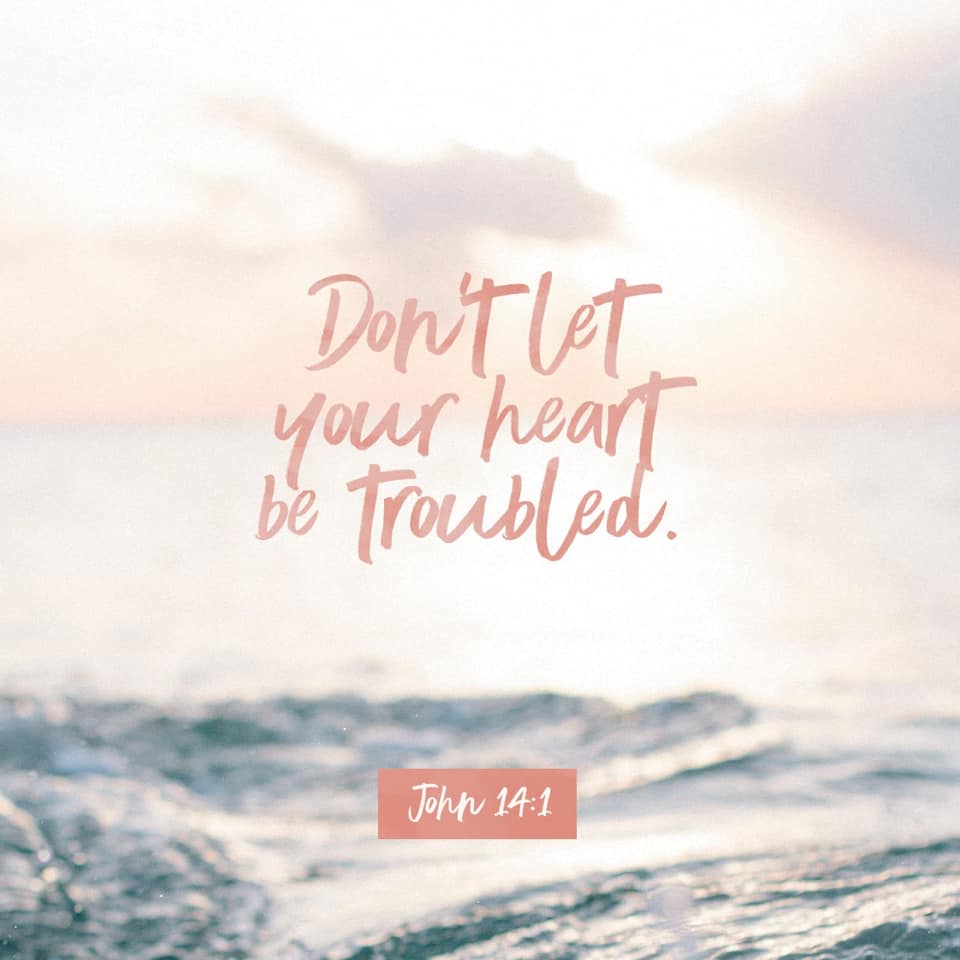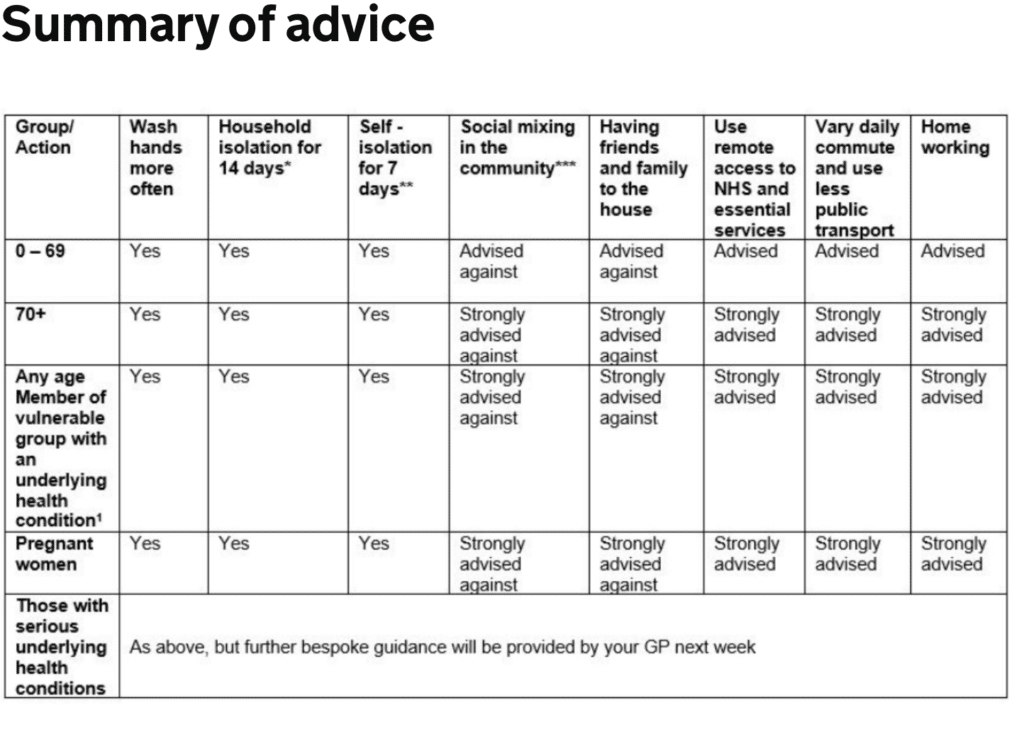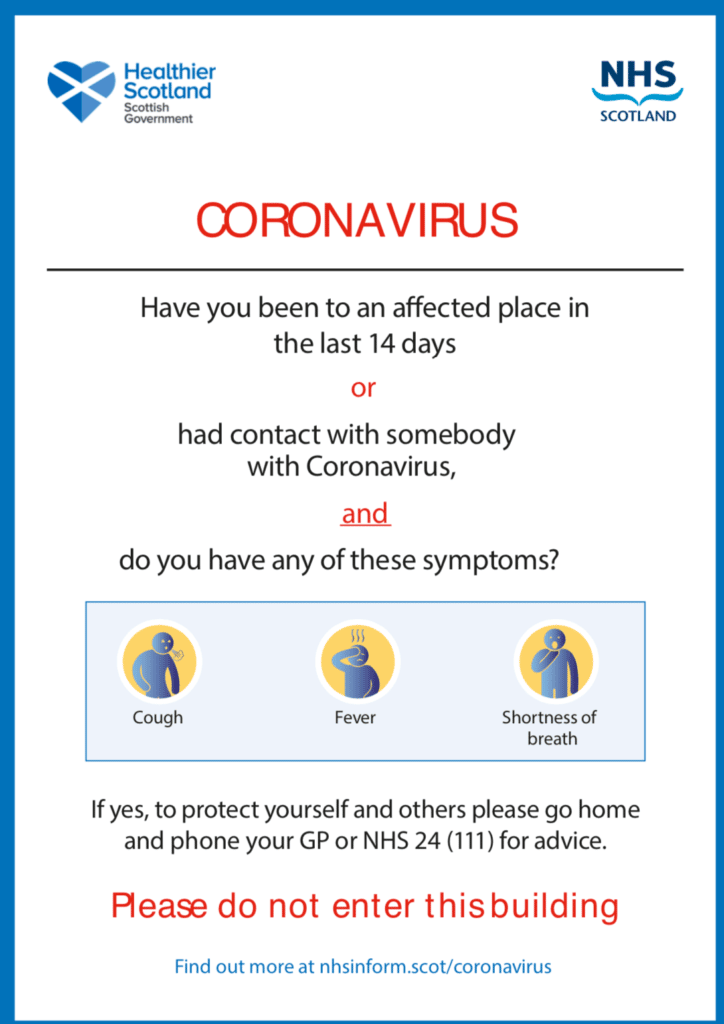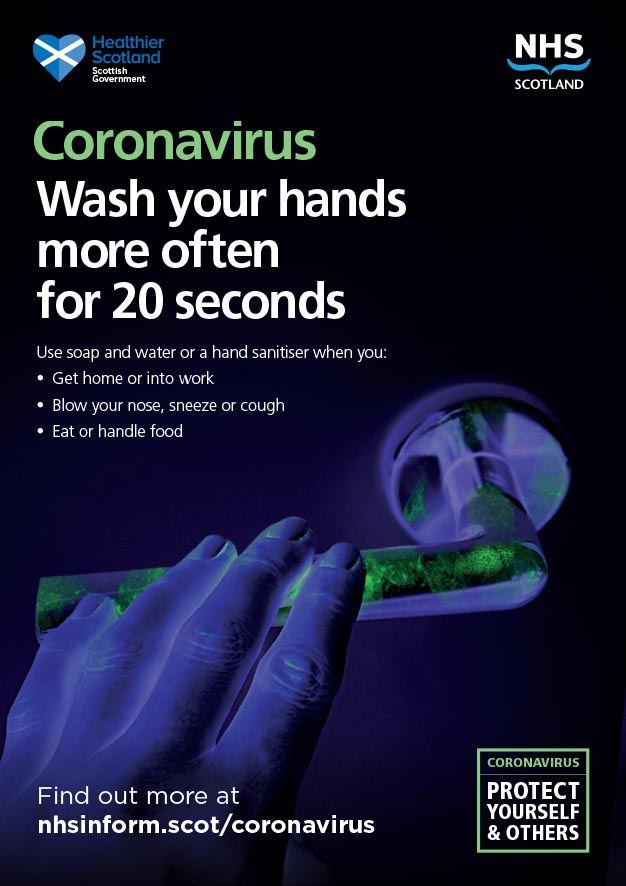Update Sunday 22nd March
Social Distancing
There is still some confusion over social distancing measures meaning that many across the country are putting themselves and loved ones at risk.
What are social distancing measures and who should follow them? Please read this guidance carefully.
Important points to note are:
- EVERYONE should be following these social distancing measures
- Those who are 70 or over and those with underlying medical conditions need to be particularly stringent in following social distancing measures.
What is social distancing?
Social distancing measures are steps you can take to reduce social interaction between people. This will help reduce the transmission of coronavirus (COVID-19).
They are to:
- Avoid contact with someone who is displaying symptoms of coronavirus (COVID-19). These symptoms include high temperature and/or new and continuous cough
- Avoid non-essential use of public transport when possible
- Work from home, where possible. Your employer should support you to do this. Please refer to employer guidance for more information
- Avoid large and small gatherings in public spaces, noting that pubs, restaurants, leisure centres and similar venues are currently shut as infections spread easily in closed spaces where people gather together.
- Avoid gatherings with friends and family. Keep in touch using remote technology such as phone, internet, and social media
- Use telephone or online services to contact your GP or other essential services
- Everyone should be trying to follow these measures as much as is practicable.
We strongly advise you to follow the above measures as much as you can and to significantly limit your face-to-face interaction with friends and family if possible, particularly if you:
- are over 70
- have an underlying health condition
- are pregnant
This advice is likely to be in place for some weeks.
Please read full guidance here.
Guidance on shielding and protecting people defined on medical grounds as extremely vulnerable from COVID-19
This guidance is for people, including children, who are at very high risk of severe illness from coronavirus (COVID-19) because of an underlying health condition, and for their family, friends and carers. Read guidance here.
Update Wed 18th March 2020
It is with sadness that today we have to cancel our Sunday services, Synergie youth and all Life Groups for the forseeable future. This is due to guidance on social distancing from the UK government.
We will be contacting and asking Life Group leaders to continue their Life Groups virtually using Zoom or some other technology and also to stay in regular contact with all their members. For those who are not yet in a Life Group, please let us know and we can open a group for you or help you connect with an existing group.
Please do join our Closed Vine Facebook Group to stay in constant communication. People from the church are posting encouraging posts every day to keep your spirits up and faith levels high.
Zara and Steven will be in communication with Synergie youth to communicate how they will continue to connect and meet virtually.
We will aim to have some sort of live streaming on a Sunday morning at 11am and will communicate details of that in the next few days.
In this video, Aaron gives an encouraging word to help us navigate through these challenging times:
‘being strengthened with all power according to his glorious might so that you may have great endurance and patience, ‘ Colossians 1:11
‘May the God of hope fill you with all joy and peace as you trust in him, so that you may overflow with hope by the power of the Holy Spirit. ‘ Romans 15:13
Coronavirus Update Mon 16th March 2020
The U.K government is now recommending that everyone should try to follow social distancing measures by avoiding large gathering and gatherings in smaller public places.
As a result it is now looking likely that we will not be meeting altogether on Sundays for some time.
We will confirms this 100% in the next few days but this is now looking very likely.
We are currently working on ensuring we maximise our use of technology so you can have virtual life groups, virtual prayer meetings and broadcast our messages to you each week.
We will also look at providing fun activities for children to do at home so they can continue to grow in their faith during this challenging season.
Thank you for your understanding, love and patience. As we all continue to love and care and pray for each other, especially for our most vulnerable members, we are believing for God’s care, protection, peace, strength and grace.
Let’s keep our eyes fixed on Him, keep worshipping, keep focussed on His word, keep meeting virtually and turn down the voice of fear by being filled regularly with His perfect love.
We are thinking and praying for you all constantly especially our most vulnerable groups. Please do get in touch if we can help you practically in any way.
Guidance
Guidance on social distancing for everyone in the UK and protecting older people and vulnerable adults
We are advising those who are at increased risk of severe illness from coronavirus (COVID-19) to be particularly stringent in following social distancing measures.
This group includes those who are:
aged 70 or older (regardless of medical conditions)
under 70 with an underlying health condition listed below (ie anyone instructed to get a flu jab as an adult each year on medical grounds):
chronic (long-term) respiratory diseases, such as asthma, chronic obstructive pulmonary disease (COPD), emphysema or bronchitis
chronic heart disease, such as heart failure
chronic kidney disease
chronic liver disease, such as hepatitis
chronic neurological conditions, such as Parkinson’s disease, motor neurone disease, multiple sclerosis (MS), a learning disability or cerebral palsy
diabetes
problems with your spleen – for example, sickle cell disease or if you have had your spleen removed
a weakened immune system as the result of conditions such as HIV and AIDS, or medicines such as steroid tablets or chemotherapy
being seriously overweight (a BMI of 40 or above)
those who are pregnant
What is social distancing?
Social distancing measures are steps you can take to reduce the social interaction between people. This will help reduce the transmission of coronavirus (COVID-19).
They are:
- Avoid contact with someone who is displaying symptoms of coronavirus (COVID-19). These symptoms include high temperature and/or new and continuous cough;
- Avoid non-essential use of public transport, varying your travel times to avoid rush hour, when possible; 3.Work from home, where possible. Your employer should support you to do this. Please refer to employer guidance for more information;
- Avoid large gatherings, and gatherings in smaller public spaces such as pubs, cinemas, restaurants, theatres, bars, clubs
- Avoid gatherings with friends and family. Keep in touch using remote technology such as phone, internet, and social media.
- Use telephone or online services to contact your GP or other essential services.
Everyone should be trying to follow these measures as much as is pragmatic.
For those who are over 70, have an underlying health condition or are pregnant, we strongly advise you to follow the above measures as much as you can, and to significantly limit your face-to-face interaction with friends and family if possible.
This advice is likely to be in place for some weeks.
Handwashing and Respiratory Hygiene
There are general principles you can follow to help prevent the spread of respiratory viruses, including:
- washing your hands more often – with soap and water for at least 20 seconds or use a hand sanitiser
- when you get home or into work, when you blow your nose, sneeze or cough, eat or handle food
- avoid touching your eyes, nose, and mouth with unwashed hands
- avoid close contact with people who have symptoms
- cover your cough or sneeze with a tissue, then throw the tissue in a bin and wash your hands
- clean and disinfect frequently touched objects and surfaces in the home
How do you look after your mental wellbeing?
Understandably, you may find that social distancing can be boring or frustrating. You may find your mood and feelings are affected and you may feel low, worried or have problems sleeping and you might miss being outside with other people.
At times like these, it can be easy to fall into unhealthy patterns of behaviour which in turn can make you feel worse. There are simple things you can do that may help, to stay mentally and physically active during this time such as:
- Look for ideas of exercises you can do at home on the NHS website
- Spend time doing things you enjoy – this might include reading, cooking, other indoor hobbies or listening to/watching favourite radio or TV programmes
- Try to eat healthy, well-balanced meals, drink enough water, exercise regularly, and try to avoid smoking, alcohol and drugs
- Keep your windows open to let in fresh air, get some natural sunlight if you can, or get outside into the garden. You can also go for a walk outdoors if you stay more than 2 metres from others
- Further information on looking after your mental health during this time is available.
Coronavirus Update Friday 13th March 2020
Those with mild symptoms of COVID-19 to take appropriate steps.
Important update
It has been announced by the Scottish Government that as of 13 March anyone developing symptoms consistent with COVID-19, however mild should self-isolate for 7 days.
The most common symptoms of COVID-19 are recent onset of:
- new continuous cough and/or
- high temperature of above 37.8°C
If symptoms worsen during home isolation or are no better after 7 days then people should be advised to phone their GP or NHS24 (111). Public Health England (PHE) have produced advice for people who have symptoms and are self-isolating which can be viewed on their website.
Those who have been in contact with someone who is experiencing symptoms should only stay at home if they begin to experience symptoms.
The advice comes after the First Minister confirmed that the Scottish and UK Governments are moving from the containment phase to delay.
“Following scientific and clinical advice, we have moved from containment to delay and that means we are advising all those experiencing symptoms which may be coronavirus, including those with mild symptoms, to stay at home.
“People have a vital role to play in helping us contain any outbreak by following the latest health and travel advice, and following basic hygiene precautions, such as washing hands frequently, not touching their face and covering their nose and mouth with a tissue when coughing or sneezing.”
Why has the advice on self-isolation changed from 14 days to 7 days?
The 14 day period is for those who have had exposure to a confirmed case but have not shown symptoms. The 14 days represents the potential incubation period (the time it takes for symptoms to show if you have been infected).
Most people will no longer be likely to transmit the virus 7 days after the onset of symptoms. You do not need to call NHS111 to go into self-isolation. If your symptoms persist past 7 days you should contact NHS 111 online at 111.nhs.uk. If you have no internet access, you should call NHS 111.
Why staying at home is very important
It is very important that you stay at home whilst you have coronavirus (COVID-19). This will help to protect your friends, colleagues and the wider community and will help control the spread of the virus.
Do not have visitors in your home
Do not invite or allow social visitors, such as friends and family, to enter your home. If you want to speak to someone who is not a member of your household, use the phone or social media.
Ending self-isolation
You should remain at home until 7 days after the onset of your symptoms. After 7 days, if you feel better and no longer have a high temperature, you can return to your normal routine. If you have not had any signs of improvement and have not already sought medical advice, you should contact NHS 111 online at 111.nhs.uk. If you have no internet access, you should call NHS 111.
Cough may persist for several weeks in some people, despite the coronavirus infection having cleared. A persistent cough alone does not mean you must continue to self-isolate for more than 7 days.
First Minister announces large events to be cancelled
From Monday all large gatherings above 500 people with the potential to impact the emergency services should be cancelled to prioritise the Covid-19 (coronavirus) outbreak.
The First Minister Nicola Sturgeon has announced the action in Scotland to protect the resilience of the emergency services until the impact of the virus has lessened substantially.
Our Sunday church service is not above 500 people so will continue as normal as detailed in guidance below.
What’s the latest?
The situation is changing rapidly at the moment and if there are any changes that will affect the Vine Church we will update this guidance.
As of 12th March 2020 12pm, Health Protection Scotland’s guidance (for non-healthcare) is that no restrictions or special control measures are required even if a possible case of Covid-19 – i.e. someone that’s being assessed or tested – has recently been into your workplace. This is because most possible cases turn out to be negative. Similarly, if you’ve been in contact with a possible case at a meeting or in someone’s home, you can continue normal activities unless you become unwell, in which case you should contact NHS 24 on 111.
But, we’re monitoring the situation and will let you know if public health advice changes. In the meantime, we all need to be prepared, in case the Government moves into a different phase and we have to close the Vine Conference centre or if the church is no longer permitted to meet together.
Key Points
Our church is continuingto gather as normal until such times as advised otherwise.
If you have the symptoms below please follow guidance stated here. If you or your child are feeling unwell please stay home and rest, seek medical attention and do not attend any church services or gatherings including youth, kids, or Life Groups.
We are monitoring the situation regularly and are following the advice given by the Scottish government.
There are many hand washing facilities available at the Vine Church. Hard surfaces will be wiped down regularly.
Individuals should:
- Wash hands often with soap and water; or use alcohol based hand rub.
- Avoid touching eyes, nose and mouth with unwashed hands.
- Wherever possible, avoid direct contact with people that have a respiratory illness and avoid using their personal items such as their mobile phone.
- Cover coughs and sneezes (nose and mouth) with disposable tissues, then dispose of these in the nearest waste bin after use. And then wash your hands/use Alcohol Based Hand Rub (ABHR).
We want to respond in faith and not fear to this risk and yet also exercise wisdom to keep ourselves and our loved ones safe. Let us pray His protection over yourself, your families, your neighbours and city. Let us also memorise Psalm 91 and recite it in faith daily to let faith and not fear fill our hearts.
‘Whoever dwells in the shelter of the Most High will rest in the shadow of the Almighty. I will say of the Lord , “He is my refuge and my fortress, my God, in whom I trust.” Surely he will save you from the fowler’s snare and from the deadly pestilence. ‘
Psalms 91:1-3
Let us also pray for those at home and across the world who have been affected. Let us pray for peace, comfort, strength and hope for a bright future.
This information provided is not meant to alarm or cause anyone distress. We do however want to keep you updated so we can all worship together safely and be sensible in following good, common sense practical advice.
What is Coronavirus?
The following Information has been provided by Health Protection Scotland
A coronavirus is a type of virus. As a group, coronaviruses are common across the world. COVID-19 is a new strain of coronavirus which was first identified in Wuhan City, China in January 2020.
The incubation period of COVID-19 is currently believed to be between 2 to 14 days. The incubation period is the time between someone being exposed to an infection and developing symptoms. This means that if a person remains well 14 days after return from a risk area or contact with someone with confirmed coronavirus, they have not been infected.
What are the typical signs and symptoms of COVID-19?
Common symptoms include:
- High temperature or fever
- Cough
- Shortness of breath or breathing difficulties
These symptoms can range from a mild-to-moderate illness to severe acute respiratory infection. Generally, coronavirus infections can cause more severe symptoms in people with weakened immune systems, older people, and those with long-term conditions like diabetes, cancer and chronic lung disease.
How is COVID-19 spread?
From what we know about other coronaviruses, transmission of COVID-19 is most likely to happen when there is close contact (within 2 metres or less) with an infected person.
It is likely that the risk of infection transmission increases the longer someone has close contact with an infected person. Respiratory secretions, from the coughs and sneezes of an infected person, are most likely to be the main means of infection transmission.
There are two routes by which COVID-19 can be spread:
• Directly; from close contact with an infected person (within 2 metres) where respiratory secretions can enter the eyes, mouth, nose or airways. This risk increases the longer someone has close contact with an infected person who has symptoms.
• Indirectly; by touching a surface, object or the hand of an infected person that has been contaminated with respiratory secretions and then touching own mouth, nose, or eyes.
What can be done in the workplace and by individuals to prevent spread of respiratory infections?
There is currently no vaccine to prevent COVID-19. However, there are general principles organisations and individuals can follow to help prevent the spread of respiratory viruses, including COVID-19, such as:
Individuals should:
• Wash hands often with soap and water; or use alcohol based hand rub.
• Avoid touching eyes, nose and mouth with unwashed hands.
• Wherever possible, avoid direct contact with people that have a respiratory illness and avoid using their personal items such as their mobile phone.
• Cover coughs and sneezes (nose and mouth) with disposable tissues, then dispose of these in the nearest waste bin after use. And then wash your hands/use Alcohol Based Hand Rub (ABHR).
Should people be wearing facemasks?
The use of face masks is not recommended for the general population. There is no evidence of benefit to support the use of facemasks outside healthcare environments. Face masks may be advised for those diagnosed with or suspected to have COVID-19 to reduce spread of infection.
Where can I find further information on COVID-19 and how to reduce the risk of infection?
Additional information can be found on the COVID-19 pages of the NHS Inform website.
People who want more general information on COVID-19 but do not have symptoms can
also phone the free helpline on 0800 028 2816. The helpline is open:
- Monday to Friday, 8.00am to 10.00pm
- Saturday and Sunday, 9.00am to 5.00pm





